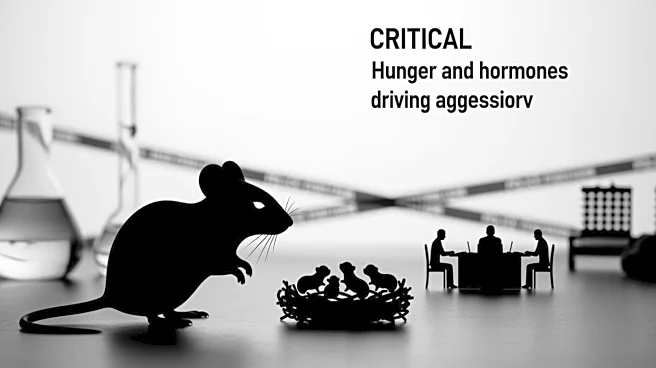What's Happening?
Researchers at the Francis Crick Institute have discovered that hunger, combined with certain hormonal states, can cause virgin female mice to exhibit aggression towards pups. The study, published in Nature, found that this aggressive behavior is linked
to the activation of AgRP neurons in the hypothalamus, which regulate appetite. The aggression occurs only at specific stages of the reproductive cycle, suggesting an interaction between hunger and parenting circuits in the brain.
Why It's Important?
The findings provide insights into how internal states such as hunger and hormonal changes can influence behavior. Understanding these mechanisms in mice can offer clues about similar processes in humans, potentially informing research on maternal behavior and aggression. The study highlights the complex interplay between physiological states and behavior, contributing to the broader understanding of brain function and its impact on actions.
What's Next?
Future research will explore how the integrated signals from hunger and hormonal states lead to changes in behavior. The study opens avenues for investigating the neural pathways involved in state-dependent behaviors and their implications for understanding aggression and parenting. These insights could have applications in developing interventions for behavioral disorders related to aggression and maternal care.















